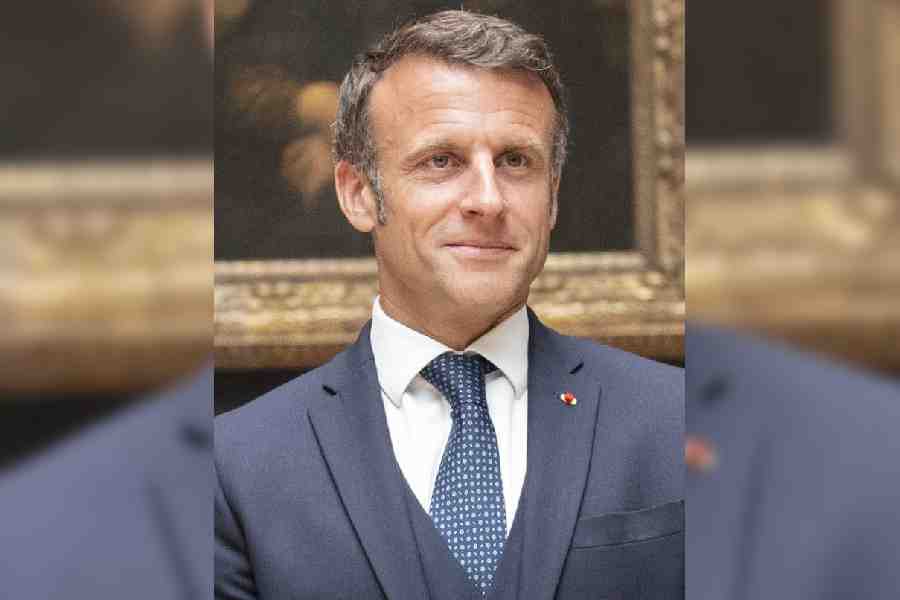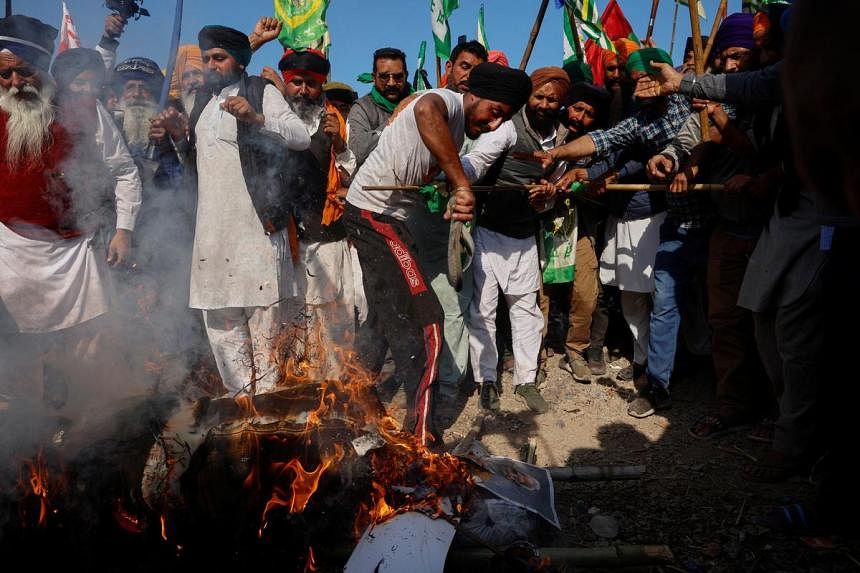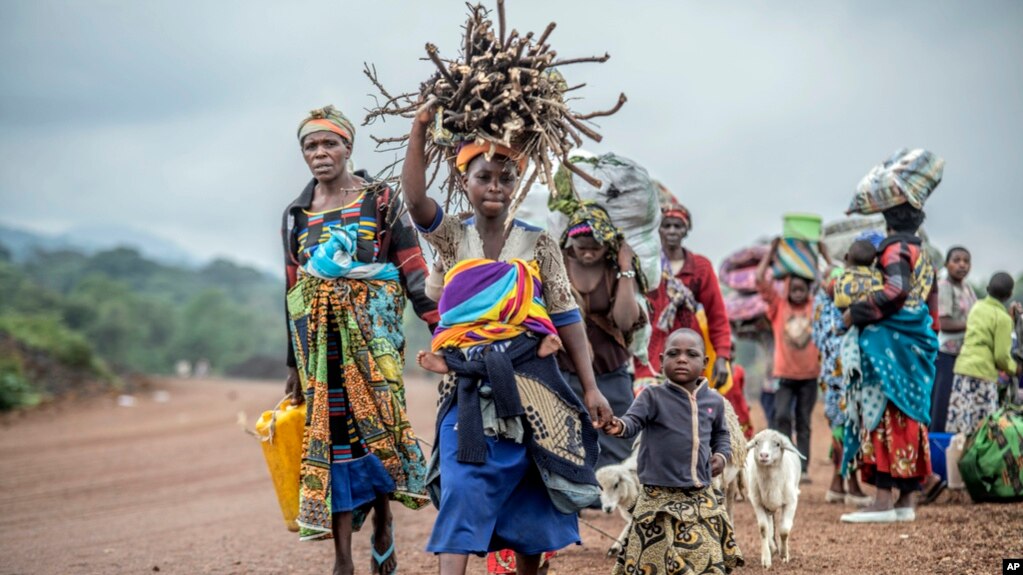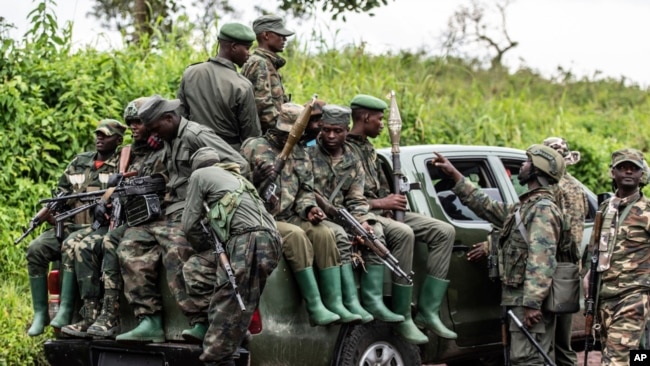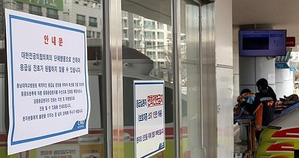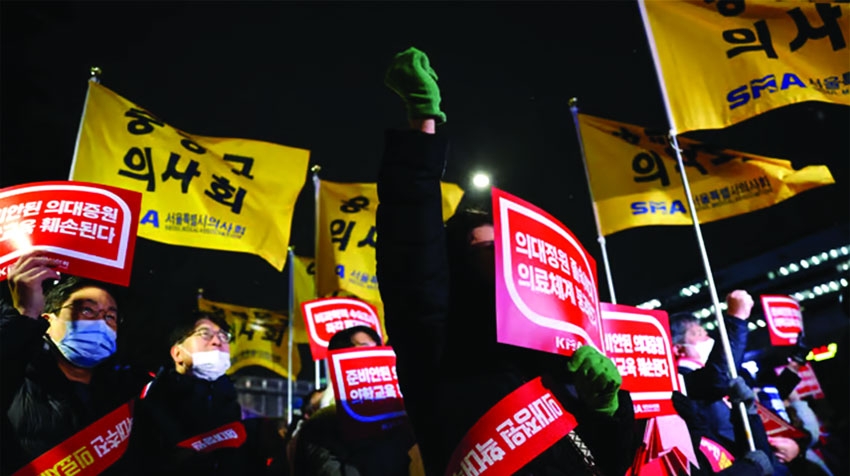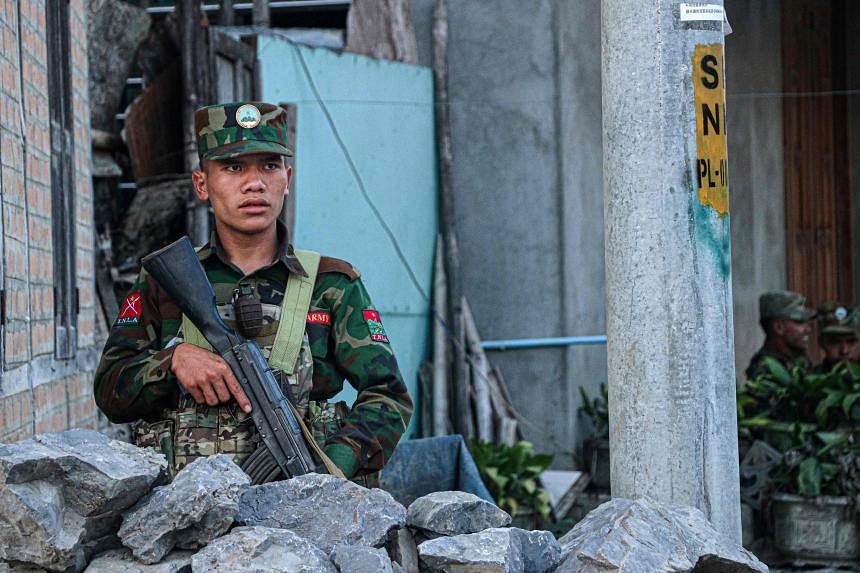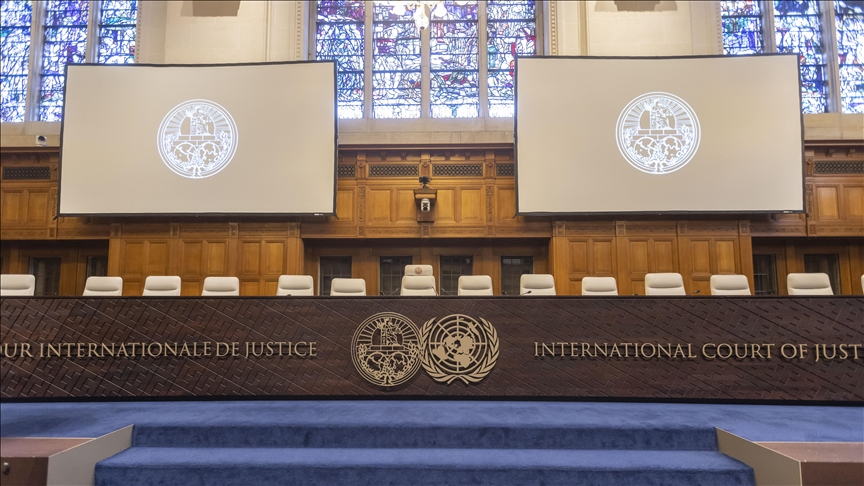Farmers’ protests in Europe and the deadend of neoliberalism
Scrapping environmental protections will not solve the agricultural crisis in Europe.
Morgan Ody
Vegetable farmer from Brittany France
Vincent Delobel
A Walloon goat dairy farmer
Published On 25 Feb 2024
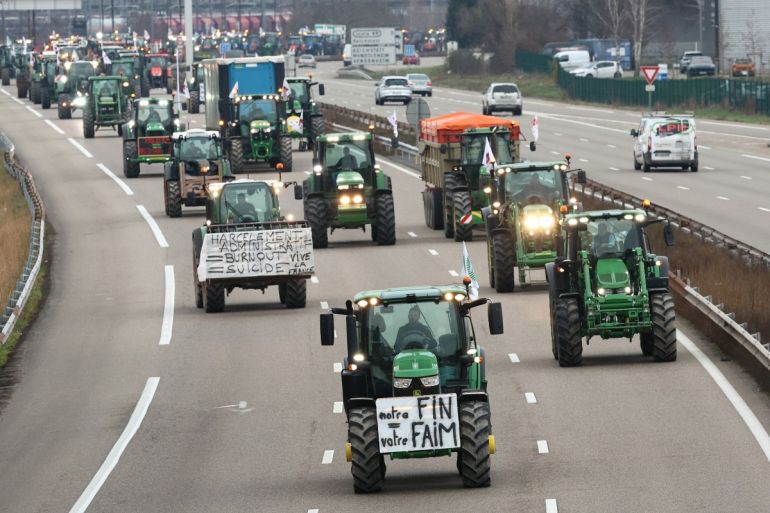
Farmers drive their tractors during a protest near Strasbourg, eastern France on January 30, 2024 [File: Frederick Florin/ AFP]
On February 26, the World Trade Organization (WTO) will hold its 13th ministerial conference in Abu Dhabi. While few would make the connection between the proceedings at that summit and the plight of impoverished farmers across the world, there is indeed a direct and clear link between the two.
On that day, we, members of the European Coordination Via Campesina (ECVC), an international organisation representing small-holder farmers in 21 European countries, will be protesting against the neoliberal policies in agriculture the WTO has been promoting for decades which have led to the systematic impoverishment of farmers.
Photos: Greek farmers drive tractors to parliament to demand financial help
This tragic state of affairs has been highlighted by the continuing protests of farmers who have been taking to the streets, blocking motorways and logistics platforms across Europe since January.
These are people who produce Europe’s food – whether conventionally or organically, on a small or a medium scale. They stand united by a shared reality: They are fed up with spending their lives working incessantly without ever getting a decent income.
We have reached this point after decades of neoliberal agricultural policies and free trade agreements. Production costs have risen steadily in recent years, while prices paid to farmers have stagnated or even fallen.
Faced with this situation, farmers have pursued various economic strategies. Some have tried to increase production to compensate for the fall in prices: They have bought more land, invested in machinery, taken on a lot of debt and seen their workload increase significantly. The stress and declining incomes have created a great deal of frustration.
Other farmers have sought better prices for their produce by turning to organic farming and short distribution channels. But for many, these markets collapsed after the COVID-19 pandemic.
All the while, through mergers and speculation, large agroindustrial groups have gotten bigger and stronger, putting increased pressure on prices and practices for farmers.
ECVC has actively taken part in the mobilisations of farmers in Europe. Our members have also been hit hard by dwindling incomes, the stress linked to high levels of debt, and the excessive workload. We clearly see that the European Union’s embrace of WTO-promoted policies of deregulation of agricultural markets in favour of big agribusiness and the destructive international competition are directly responsible for our plight.
Since the 1980s, various regulations that ensured fair prices for European farmers have been dismantled. The EU put all its faith in free trade agreements, which placed all the world’s farmers in competition with each other, encouraging them to produce at the lowest possible price at the cost of their own incomes and growing debt.
In recent years, however, the EU has announced its intention to move towards a more sustainable agricultural model, notably with the Farm to Fork Strategy, which is the agricultural component of the Green Deal.
Farmers’ organisations welcomed this ambition, but we also stressed that the sustainability of European agriculture could not be improved without breaking away from the logic of international competitiveness. Producing ecologically has huge benefits for the health and the planet, but it costs more for the farmers, and so to achieve the agroecological transition, agricultural markets need to be protected. Unfortunately, we were not heard.
European farmers were therefore faced with an impossible mission: delivering an agroecological transition while producing for the lowest possible price. As a result, differences between farming organisations have clearly resurfaced.
Advertisement
On one side, the big farmers and agribusiness organisations, linked to Copa-Cogeca, want to maintain the neoliberal orientation and have therefore asked for the withdrawal of environmental measures set in the EU’s Green Deal.
On the other side, ECVC and other organisations affirm that the environmental and climate crises are real and serious and that it is vital to give ourselves the means to combat them in order to ensure food sovereignty for the decades to come. For us, it is the neoliberal framework that must be challenged, not environmental regulation.
In particular, we denounce the free trade agreement between the EU has been concluding with various countries and regions. One of them is the deal negotiated with Mercosur countries (Brazil, Argentina, Paraguay and Uruguay). A final text was drafted in 2019, but it has not been signed or ratified by either side.
If it comes into effect, it would be a disaster for European livestock farmers, as it will lead to increased imports of meat, among other products, from Mercosur countries. This could potentially drive down prices, putting even more economic pressure on already struggling European livestock farmers.
Additionally, the deal could result in the importation of products that do not meet the same strict standards for food safety and environmental sustainability that the EU has embraced.
While we are not against international trade in agricultural products, we advocate for trade to be based on food sovereignty. This means allowing the import and export of agricultural products, but under the condition that it does not harm local food production and the livelihood of small-scale food producers.
Instead of protecting their farmers and helping them transition to agroecology, the EU has chosen to respond to the demands of big farmers and agribusiness organisations by reversing a key provision of the Green Deal: halving the use of pesticides by 2030.
Some European countries have also decided to address this crisis by abolishing environmental measures while maintaining neoliberal policies. France, for example, paused the Ecophyto pesticide reduction plan, while Germany abolished its plan to scrap tax breaks on farming vehicles and watered down legislation to lift subsidies on off-road diesel fuel.
Removing environmental regulations is a very risky choice because it does nothing to permanently solve the essential problem of dwindling farmers’ incomes. So we can be sure that farmers’ protests will continue to escalate in coming years.
All of this is happening at a time when the far right is on the rise across the world. Rather than solving the problems by ensuring a better distribution of income, the far right designates minority populations as scapegoats (migrants, women, LGBTQ, etc) and increases the violent repression of popular movements.
Advertisement
In the Netherlands, farmers’ anger was exploited by the right-wing Farmer-Citizen Movement party (BBB), which leveraged anti-system and anti-ecology rhetoric to secure more votes. As a result, the BBB made significant gains in provincial and national elections, increasing its seats in parliament from one to seven.
With the EU’s incoherent reaction to the farmers’ protests, there is a real risk that this trend will continue in the elections for the European Parliament in June.
The farmers’ unions within ECVC maintain that the real solutions for European farmers are policies to regulate markets and promote food sovereignty, in cooperation with the countries of the South. At a time when capital income is exploding, we, as farmers, are standing with the workers’ unions and the climate movement to demand a fair income for all workers and coherent policies to respond to the global climate emergency.
The views expressed in this article are the authors’ own and do not necessarily reflect Al Jazeera’s editorial stance.

Morgan Ody
Vegetable farmer from Brittany France
Morgan Ody is a vegetable farmer from Brittany, France and General Coordinator of La Via Campesina.

Vincent Delobel
A Walloon goat dairy farmer
Vincent Delobel is a Walloon farmer, is a pioneer of organic goat dairy farming in Tournai, Belgium. He is also a spokesperson for the Belgian farmers' union FUGEA and member of La Via Campesina.
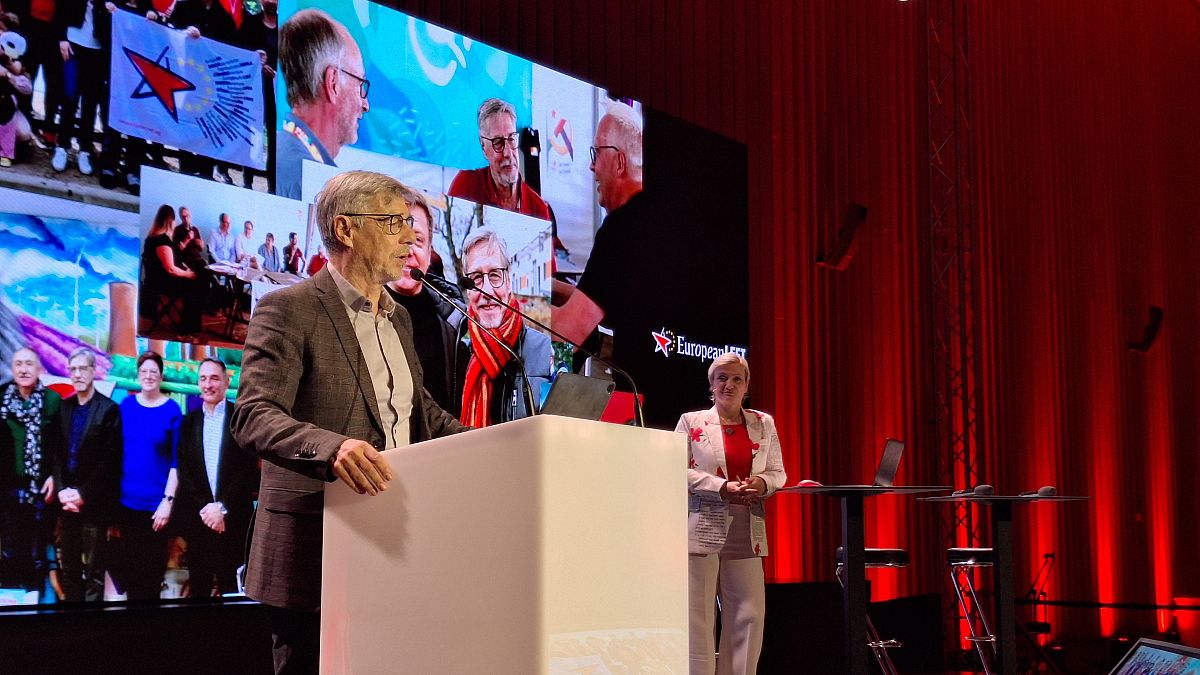 Aida Sanchez AlonsoPublished on 25/02/2024 -
Aida Sanchez AlonsoPublished on 25/02/2024 -


